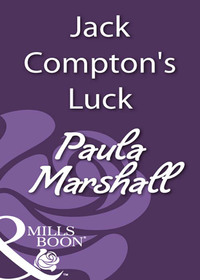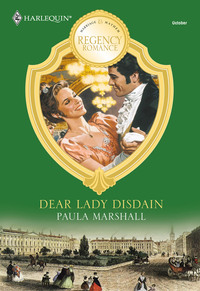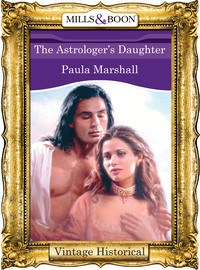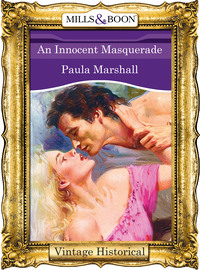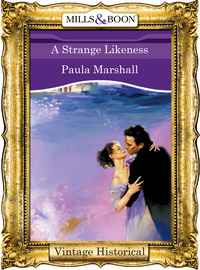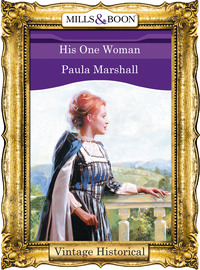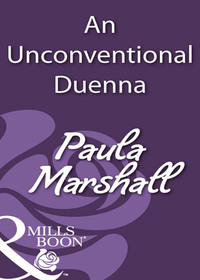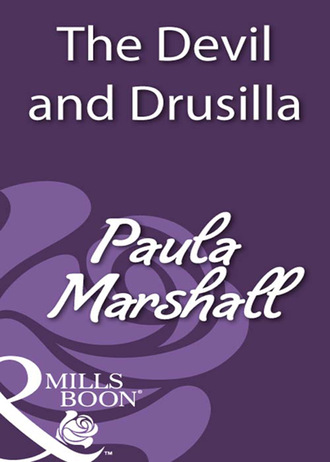
Полная версия
The Devil And Drusilla
He repressed it and said, ‘I don’t condone their violence, you know, but I do understand what causes it. Some relief, surely, could be given to those who wish to work, but who are unable to do so.’
‘Not Jacobin tendencies then, eh, Devenish? No feeling for revolution?’ Sidmouth said this quietly. He was a mild man. ‘No, don’t answer me, I know that on the whole you are more like friend Granville here and favour moderate and gradual change.’
He paused, ‘Perhaps Lord and Lady Granville, you will forgive us both. Devenish is well met. I have need of a private and quiet word with him. You will both excuse us, I trust.’
The Granvilles assured him that they would. Sidmouth led Devenish into an ante-room and shut its double doors behind them. Without preamble he said, ‘Do you intend to visit Tresham in the near future?’
Devenish said, ‘I have thought of doing so, yes. It’s years since I was there. My agent reproaches me every month for my absence, so I have arranged to go as soon as the House rises.’
‘Yes, you take your duties seriously. As I take mine. I ask you because something odd has been happening there recently. The Lord Lieutenant of Surrey has brought to my notice that over the last few years two men, one a person of quality, have disappeared. The gentleman was later found murdered. Several women of the lower orders have also disappeared—one as recently as a month ago. No reason has been found for their disappearance, and apart from that of the gentleman, not one of their bodies has been recovered. He would like an enquiry made.
‘Now, I have the hands of myself—and the few men I have at my disposal—overfull with this business of controlling radical revolution, to say nothing of Luddite discontent. I was speaking to an old friend of mine—Wellington, to be exact—and he told me that he has reason to believe that you are a sound man in a crisis involving danger. That being so I would ask you—discreetly, mind—to investigate this sorry business and report back to me should you find anything of moment.’
Devenish’s first thought was of Robert’s mysterious letter. He said nothing, however, other than, ‘I think that the Duke overestimates my abilities, but I will do as you ask. As a stranger to the district it will not seem odd if I ask questions about it. I take it that that is all the information you have. Has no other landowner raised the matter?’
‘Yes, Leander Harrington, the eccentric fellow who lives at Marsham Abbey, alerted the Lord Lieutenant about the second man who disappeared. It was his valet, and although he had no reason to believe that foul play was involved, he had given no warning of his imminent departure. On the other hand his clothes and possessions had gone, which seemed to indicate that he had left of his own free will.’
‘As a matter of interest, have you any information about the murdered gentleman?’
‘Yes, indeed. He was Jeremy Faulkner of Lyford, a young man of substance. He was found dead in a wood some miles from his home. His body had been brutally savaged by an animal, it was thought, although whether before or after death was not known. His widow, Mrs Drusilla Faulkner, the late Godfrey Stone of Stone Court’s daughter, had reported him missing at the beginning of the previous week.’
‘And Lyford House is less than a mile from my seat at Tresham. I see why you thought of me.’
‘Coupled with what Wellington hinted, yes.’
Well, at least it would help to pass the time at Tresham—and perhaps serve to subdue his unwanted memories.
‘I can’t promise success,’ Devenish said slowly, ‘but I’ll do my best.’
‘Excellent, I shall be able to reassure the Lord Lieutenant that I am taking him seriously—although I shall not tell him who my emissary is. The fewer people who know, the better. This business might be more dangerous than it appears.’
Sidmouth paused. ‘You’re a good fellow,’ he added warmly. ‘I felt sure that you would oblige me.’
‘Despite my reputation for never obliging anyone.’ Devenish began to laugh. ‘At least it will enliven a few dull weeks.’
Later he was to look back on that last remark and at the light-hearted fool who had made it, but at the time he walked back to the ballroom to congratulate Lord Orville on having won his beauty.
Chapter Two
‘Isn’t it time, Drusilla, my love, that you left off wearing your widow’s weeds? Jeremy has been gone for over two years now, and I don’t believe that he would approve of your hiding yourself away from the world, either.’
Miss Cordelia Faulkner looked anxiously at her nephew’s widow. She did not wish to distress her, but she thought that the time had come for something to be said.
‘Dear aunt,’ said Drusilla, looking up from her canvaswork, ‘I am scarcely wearing widow’s weeds. I have always chosen to dress modestly, and to live in like fashion, and I have certainly not hidden myself away from the world. I live a busy life locally, and only this week I have arranged with the parson of Tresham Magna that his annual fête to raise money for the poor children of the parish will be held in our gardens.’
‘I expressed myself badly. I should have said the polite world. You ought to marry again, my love, not spend your life pining for my poor, dead nephew, and where better would you find a husband than in London?’
How to answer that? Drusilla looked away and caught a glimpse of herself in the long Venetian glass which hung on the other side of the room.
She saw a composed young woman in her very early twenties, dressed in a high-waisted gown of pale mauve, the colour allowed to a widow during her second year of mourning—a year which was now over. Her glossy curls were dressed on top of her head, one ringlet falling round a swan-like neck. Her eyes were the soft grey of clear water and her complexion was creamy, with only the faintest blush of pink.
Jeremy had always called her lips kissable—and he had often kissed them during the two years of her marriage. No, that was not correct, Drusilla reminded herself sadly, for eighteen months only. He had barely touched them, or her, during their last six months together.
It was the memory of those last sad months which helped to keep her in thrall to him. What had gone wrong with their marriage that he had absented himself from her not only bodily, but mentally? What had changed him from a carefree laughing boy to a brooding man? Was it something which she had unwittingly said or done?
Drusilla returned to the present with a start. Miss Faulkner was staring at her. She put her work down. ‘I’m sorry, aunt, I was wool-gathering. But you already know that the polite world does not interest me, and I have no intention of marrying again.’
‘So you say now,’ remarked Miss Faulkner shrewdly. ‘Later, you will surely change your mind.’
She sat down opposite Drusilla and said, her voice a trifle sad, ‘I cannot recommend the single state, my dear. When I was young and foolish I turned down a man of solid worth because he was not romantic enough for me—my head was stuffed with cobwebs.
‘By the time I realised that I was neither pretty enough—nor rich enough—to catch the handsome young fellow I thought I loved, and would have settled for solid worth, he had found another bride. And I, I never found anyone else who wished to make me his wife, and I led a lonely life until Jeremy kindly asked me to be your attendant when you married him. Do not reserve my sad state for yourself. You are younger, prettier and richer than I ever was. Find a good man and marry him.’
Picking up her canvaswork again, Drusilla told Jeremy’s aunt what she had never thought to tell anyone. ‘This time I would wish to marry for love. Oh, don’t mistake me, my parents arranged our marriage and I was happy with Jeremy.’
Until the last six months, said her treacherous memory.
Repressing it, she continued, ‘I’m not hoping for a grand passion, just a homely love. The kind of love my parents shared. What Jeremy and I had was friendship. I may be foolish, and I may have to settle for less again, but not yet, please.’
‘Very well, my dear, so long as you don’t wait too long—or settle for a fortune hunter.’
‘Oh, I shall ask for your advice if one arrives. Would you forgive me if I settled for one who was young, handsome—and kind?’
Miss Faulkner smiled. ‘Ah, you mean like Miss Rebecca Rowallan’s Will Shafto, I suppose. There are not many of those on offer, I fear.’
Further conversation was stopped by an agitated rapping on the door, and the entry of Vobster, Drusilla’s chief groom.
‘Yes, what is it, Vobster?’
‘It’s Master Giles, ma’am. He’s trying to persuade me and Green to allow him to ride Brandy instead of Dapple. I fear that, unless you have a word with him, he won’t take no for an answer.’
Drusilla rose, shocked, her face paling. Behind her Miss Faulkner was making distressed noises. Giles was Drusilla’s eighteen-year-old brother, who had a badly crippled leg as the result of a strange childhood illness which had kept him bedridden for months.
Dapple was a mild and well-behaved nag whom the doctor had reluctantly given him permission to ride, but Brandy was quite a different matter. He was the most high-spirited horse in the Faulkners’ small stable.
‘I’ll come at once,’ she said quickly. ‘We can’t have him trying to ride Brandy.’
‘And so I said, but he wouldn’t be told.’
‘Well, he’ll listen to me, I hope. I don’t wish to ban him from riding at all, for I believe that it keeps him well and happy, but we can’t have him risking his neck on fliers like Brandy.’
She arrived in the stable yard to find that Giles had finally persuaded Green to allow him to mount Brandy, by promising that he would not ride him, but would allow Green to hold him steady in the stable yard.
‘I should so like to sit on a real horse for once,’ he had said pathetically, ‘instead of that rocking chair which is all Dru will allow me.’
‘And rightly so, Master Giles, for you have not the strength to control Brandy. It was all Mr Jeremy could do to hold him.’
Giles knew that Drusilla did not wish to sell Brandy, although she could not ride him, because it would mean that her happiest memories of her husband would have disappeared with him.
He looked proudly down at his sister. ‘See how well I sit on him, Dru,’ he said. ‘Pray allow me to ride him—if only for a few yards.’
Drusilla looked sadly at Giles. On horseback he appeared to be a handsome and well-built boy for his withered leg was hidden by his breeches and his spotless boots. She also saw a masculine version of her own face. Parson Williams had nicknamed them Sebastian and Viola, the beautiful brother and sister in Shakespeare’s Twelfth Night, who were so alike that in boy’s clothes they could be mistaken for one another.
‘You know very well that you cannot do that. It is against the rules which the doctor insisted on for your own safety.’
‘Oh, pooh to him! My arms are strong enough for me to control any horse. I refuse to be namby-pambied any more. At least allow Vobster and Green to walk me on him for a short distance. You may watch me and see how well I do.’
He looked down at her, his face on fire. Drusilla knew how much he resented not being like other boys, particularly since it was plain that if his leg had been normal he would have had the physique of an athlete.
‘Very well,’ she said, relenting, ‘but you must promise to be good.’
His smile was dazzling. ‘Oh, I am always good, Dru! You know that.’
‘No such thing,’ she told him ruefully, but gave Green and Vobster permission to lead him and Brandy out of the yard and on to the track which led out of Lyford House to join a byway which led to Tresham Magna. Vobster was shaking his head a little because she had, as usual, given way to headstrong Master Giles and nothing good would come of that.
He was right. For the first hundred yards Giles behaved himself, trotting along equably, with Brandy showing his annoyance at being curbed by tossing his head and snorting. One of the stable lads, Jackson, mounted on Drusilla’s own horse Hereward, accompanied them. Drusilla herself, despite wearing only light kid sandals, brought up the rear.
The path was firm and dry and the July sun shone down on them. From a distance they would have made a suitably charming scene for the late animal painter, George Stubbs, to celebrate.
And then, as Drusilla afterwards mourned to Miss Faulkner, Giles had to spoil it. Without giving any warning of what he was about to do, he put spurs to Brandy who, nothing loath, reared his haughty head, and set off as though he were about to charge into battle or win the Derby.
Green let go of his leading rein immediately. Vobster, more determined, hung on a little by one hand before prudence had him follow suit, lest he be injured. Jackson, urged on by the horrified Drusilla, tore after Giles in hot pursuit, for it was plain that the delighted Brandy, given his head, was going to be too much for his rider to control.
As though to demonstrate that he was in charge, Brandy immediately left the path, and charged across country towards Tresham Hall until he came to a tall hedge which he promptly jumped. Jackson followed suit, whilst Drusilla, Green and Vobster panted along behind them, delayed by having to push their way through a gap in the hedge.
Once through they saw that Hereward had unshipped his rider, but that Brandy had not, although Giles was slipping sideways in the saddle. Only his courage and his abnormally strong arms were preventing him from following Jackson’s example as Brandy made for the next hedge.
But not for long. A final lurch to the right by wilful Brandy had him out of the saddle, too. Unencumbered by Giles’s weight, Brandy tore madly on towards another horseman who had jumped the hedge from the other side and who only avoided being struck by the oncoming Brandy by swerving sharply.
He then had to swerve sharply again to prevent himself from trampling on the prostrate Giles—which manoeuvre almost had his own horse unshipping him! The happy Brandy, meanwhile, was bolting into the far distance.
Drusilla opened her eyes, which she had closed after Giles’s fall and Brandy’s near accident, to see that the new horseman had stopped, flung his reins to a drop-jawed Vobster, who had outpaced herself and Green, and was running towards Giles who was trying to sit up.
‘No, don’t,’ said the stranger sharply, falling on to his knees beside the dazed boy and beginning to feel his arms and legs to check whether any bones were broken.
He had just discovered Giles’s withered leg when Drusilla arrived—Green had gone to try to catch Hereward so that he might pursue Brandy, whilst Jackson was limping homewards.
‘Is he badly hurt?’ gasped Drusilla who had not run so far or so fast since she had been a hoydenish young girl.
The stranger looked up at her. ‘Apparently not—and no thanks to the fools who let him ride a half-broken horse. You were lucky that he didn’t kill himself.’
Drusilla could not help herself. She stared at him. He was the most handsome man she had ever seen. He resembled nothing so much as the statue of Apollo which Jeremy’s father had brought from Greece. His hair, cut short in the latest fashion, was golden, and slightly curling. His eyes were as blue as the sunlit sea and his mouth was long and shapely: but for all his classic beauty there was nothing feminine about him.
On the contrary, he gave off an aura of cold strength and assured masculinity which was reflected in a voice so hard and measured that it shocked Drusilla into silence.
Not so Giles. He struggled upright and said indignantly, ‘You go too fast, sir. And you’re not to talk to my sister like that. My accident wasn’t her fault, it was mine. I was stupidly disobedient and paid the price for it—and who the devil are you, anyway?’
The stranger laughed and rose. ‘You might say the devil himself if you wished. But I would prefer you to call me Devenish. I apologise to your sister—and in the name of all that is holy, who are you, anyway?’
Brother and sister both stared at him. Giles croaked, ‘Forgive me, m’lord, I had no notion that you were staying at Tresham, or I should not have been so short. I am Giles Stone, and this is my sister Drusilla Faulkner, the widow of the late owner of Lyford House.’
‘Are you, indeed! If you were my young brother and responsible for riding a horse you couldn’t control then I would think up a suitable punishment for you. I trust your sister will do the same.’
‘But you ain’t,’ retorted Giles, struggling to his feet, to be helped by Devenish when he saw the lad’s determination. ‘And it’s up to her to decide on my punishment, not you. Ain’t it, Dru?’
‘Ah, a youth of spirit,’ drawled Devenish. ‘How came you by that leg, anyway? Were you born with it?’
This matter-of-fact question, when most people they knew tip-toed apologetically round Giles’s disability, pleased both brother and sister.
Drusilla suddenly found her voice. So this was Henry, Earl Devenish, nicknamed ‘the Devil’. She could not allow the knowledge of his reputation to silence her. She answered him before Giles could.
‘A childhood illness, m’lord. He contracted a long and lingering fever, which had him bedridden and his leg withering. But that was the least of it, most of the children around here who were so afflicted at the time lost more than that. They lost their lives.’
‘Well, at least he kept his—and his impudence, too. Are you fit enough to walk to my horse, Master Giles, or would you prefer me to carry you? I can convey you to your home if your sister will lead the way.’
‘Oh, Green will do that when he returns,’ said Drusilla hastily. ‘No need to put yourself out.’
‘Oh, I never do that,’ riposted Devenish. ‘Very unwise. People would always be expecting it of me—most inconvenient. I needed amusement and entertainment this afternoon and you are providing it. I had not thought the countryside so full of incident.’
And that was that. There could be no gainsaying him. He helped Giles to hobble towards his horse, and with Vobster’s assistance they hoisted him on to it, and set off for Lyford House.
Well, he had wanted entertainment and now he had it! What was better still, he could not have hoped for an easier entry to the late Jeremy Faulkner’s home, together with an introduction to his widow. He had not known of the lively young cub’s existence and could not be sure whether the lad’s presence would make his task easier or harder.
As for Mrs Drusilla, she was a pretty young thing with, if he was not mistaken, a graceful figure beneath her Quakeress’s gown. Was she still in mourning for the late Jeremy? Its colour would suggest so. After two long years? Did one then infer an undying love?
Probably, on the evidence of their encounter so far, the lad had all the spirit in the family—and all the character, too. Yes, undying love it must be, of the sentimental sort, ignoring all the flaws which the late Jeremy must have undoubtedly possessed.
Devenish’s cynical musing was taking place whilst he talked nothings to the unworldly Miss Cordelia Faulkner. His hostess had insisted on seeing her brother to his room and sending for the doctor before she returned to take tea with them.
Drinking tea at an unfashionable hour held no attraction for him—he detested tea at any hour. Coffee was Devenish’s drink, but he was prepared to sacrifice himself for once.
‘Do you intend to stay long in this part of the world, m’lord?’ Miss Faulkner was asking him.
‘Oh, that depends,’ he answered, ‘on whether I find anything on which to fix an interest—or to entertain me. Now this afternoon I was provided with a great deal. To be nearly run down by a riderless horse, to avoid by inches trampling a lively youth to death, followed by meeting a charming widow—now that is a series of situations for a novel, do admit. Particularly since myself, horse, youth, and lady, are still alive and well.’
Miss Faulkner beamed at him. He was not in the least like his reputation. Such easy charm! Such grace! It was fortunate that mind-reading was not her game, for what Devenish was saying and what he was thinking bore no relationship to one another.
‘I believe that your adventures this afternoon resembled those in the novels of Miss Jane Austen rather than the Gothic delights of Mrs Radcliffe. No murders, no haunted abbeys, mysterious monks or dangerous crypts,’ she announced gaily.
Devenish forbore to point out to her that the former owner of Lyford House itself had been involved in one mysterious death. Tact must be used here, particularly since Mrs Faulkner, followed by the tea board, was now with them again.
He rose and bowed. Drusilla noted distractedly that his clothing was as perfect as his face and body. She had always assumed that a man nicknamed ‘the Devil’ must be dark and dour and dressed to match.
Nothing of the sort. The only thing about him which lived up to his name was his conversation, if the manner in which he had spoken to Giles was typical of it.
‘I trust that Master Giles is beginning to recover from his accident,’ he offered her.
‘Master Giles,’ returned Drusilla cheerfully, ‘is behaving as he always does—as though he hasn’t a care in the world. I am beginning to ask myself what would distress him.’
Devenish’s smile was almost a grin. ‘Better that way, surely, than a lad who always makes the worst of things.’
‘Oh, indeed. He was distressed, I must admit, by my husband’s death—but then he and Jeremy always dealt famously together. Not many men would have cheerfully given their wife’s crippled young brother a home—and made a friend of him.’
‘I had not,’ Devenish lied smoothly, ‘been informed of your husband’s death. I regret that I was never kept up to the mark with local news. As you know, this is my first visit to Tresham in ten years. I trust that it was not a lingering illness.’
He saw her face change and added hastily, ‘Pray ignore my question if it distresses you.’
‘Not at all. It is two years since my poor Jeremy was found dead at some distance from his home. As to how and why he came to his end I suppose I shall never now know. You may imagine that at the time I was greatly distressed, but I have come to terms with it, if slowly.’
‘A mystery, then.’
‘Oh, indeed. The Lord Lieutenant came to see me, to assure me that everything in his power would be done to find the wretch—or wretches—who killed him. Alas, he wrote to me recently telling me that he regretted his failure to track them down.’
Drusilla was calm. Until very recently she would have found difficulty in speaking of Jeremy’s dreadful end. She noted that Devenish’s response to her was as coldly practical as his question about Giles’s damaged leg had been.
‘I commiserate with you, madam. You must miss him greatly.’
‘Yes, we were childhood friends, and our life was happy, but pining for him will not bring him back.’ The gaze she gave him was a frank one—which, like his, did not match her thoughts. She could never forget that last six months, never.
Devenish nodded his agreement. ‘Yes, you are right there. Common-sense is always better than sentimentality. In the end, one has to come to terms with the discomforts of living.’
Drusilla nodded in her turn, and conversation died for a moment while Miss Faulkner, who had taken charge of the tea board, offered everyone more tea and muffins.
‘Do you intend to settle in Surrey?’ Drusilla asked him when tea had been poured and muffins refused, more to turn discussion away from Jeremy’s death, she told herself, than to discover m’lord’s intentions. In thinking this she lied to herself a little. Lord Devenish intrigued her. He was so unlike Jeremy, or, indeed, most of the men she knew.
It was not only his looks which fascinated her, but his barbed remarks, so carelessly tossed at his hearers. Even so, little about him appeared to justify his fearsome reputation.
She must have been staring mannerlessly at him, for he was smiling quizzically at her over the rim of his teacup.


